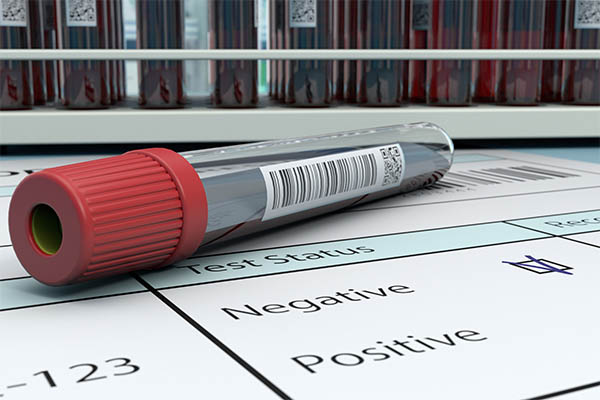Biological discoveries and technological innovations are changing how illnesses are detected and treated, giving rise to new, non-traditional ways to screen for and monitor disease.
Many of these innovations are sold directly to consumers. While some of these direct-to-consumer (DTC) products have proven worth, such as cholesterol testing devices, glucose monitors and test strips for diabetes monitoring, the same cannot be said for DTC tests that purport to screen for and prevent cancer.
As a health professional, you are likely aware of the significant clinical, ethical and legal concerns that DTC cancer tests pose. While regulations addressing DTC cancer tests have recently been strengthened, there remain loopholes which mean your patients may continue to access them.

The rise of DTC testing
DTC cancer tests include a range of screening tools that are typically sold to consumers online without the need for prior consultation with doctors. They have become increasingly popular in recent years, and you may have come across them in your interactions with patients. The sale of DTC genetic tests, for example, has grown into a $1 billion USD industry since the early 2000s.
It’s easy to understand their popularity. Diseases like cancer are scary, and having a simple test that claims to help you prevent the disease is very appealing. For consumers, DTC testing seems to offer easy access to the test they want, without having to spend money or time on a doctor who may not order the test. But what is often advertised as ‘empowerment’ can waste time and money and even put people’s health at risk.
Concerns over DTC testing
Concerns over DTC cancer tests begin with how they are marketed. DTC testing companies often overstate the benefits of their tests, while undermining trust in more useful evidence-based testing. There are also significant questions about the usefulness and efficacy of tests for cancer screening by the general public, and fears about the lack of informed consent and professional support provided. Without professional support or a full understanding of the test and test results, consumers may end up visiting their GP to undergo further unnecessary testing and follow-up placing a burden on local services, or avoiding medical attention altogether when they actually need it.
There are additional concerns about quality control (including with test interpretation), data retention and security, and the on-selling of consumer data to third parties.
DTC cancer marker tests
In recent years, companies in Australia and abroad have begun marketing cancer marker or ‘liquid biopsy’ blood tests commonly used in the clinical setting to assist in the diagnoses, management and monitoring of certain types of cancer. For example, DTC cancer marker tests for biomarkers associated with bowel, ovarian and prostate cancer are being sold online to the general public.
While these tests may have some utility in the clinical context as part of a suite of diagnostic and monitoring tools, they cannot conclusively detect cancer alone, and therefore do not meet the standards required for use as population-wide screening tools.
This hasn’t stopped some companies from marketing these tests as a way for healthy people to ‘take control’ over their health and prevent disease. These ‘wellness’ companies have gained momentum online by claiming to ‘democratise’ health by bypassing medical professionals and giving people control over their results. In doing so, they may undermine medical expertise and conventional healthcare services.
Regulation of DTC cancer testing
At present, the regulation of DTC testing in Australia is piecemeal and fragmented, with many federal and state laws covering different aspects relating to test safety and efficacy, privacy, advertising and consumer protection.
The main law is the Therapeutic Goods Administration (TGA) Act and the regulations that fall under it. In 2020, following consultation in which Cancer Council actively participated, the TGA regulations that exclude the registration and legal supply of ‘self tests’ for cancer (genetic and non-genetic) on the Australian Register of Therapeutic Goods was extended - with the important exception of self-tests as part of National Cancer Screening Programs, such as the DIY bowel cancer test kits under the free National Bowel Cancer Screening Program run in conjunction with Cancer Council.
But loopholes exist. DTC cancer marker tests can continue to be sold, mainly because they don’t fall within the definition of ‘self-tests’ under the TGA’s purview.
The internet also enables markets that cross country borders, making it difficult to regulate and restrict access to DTC tests. More effective regulation and enforcement is required.
With DTC health tests on the rise, it’s important that regulatory systems protect the public while promoting safe and effective innovation. We must also implement evidence-based policy, guidance and health literacy campaigns to empower clinicians and encourage people to take an active interest in their health and in evidence-based cancer care, instead of turning to ‘miracle’ tests.
This article was written by the McCabe Centre for Law & Cancer. Read a consumer-focused article on DTC cancer tests, which may be a useful resource for your patients.